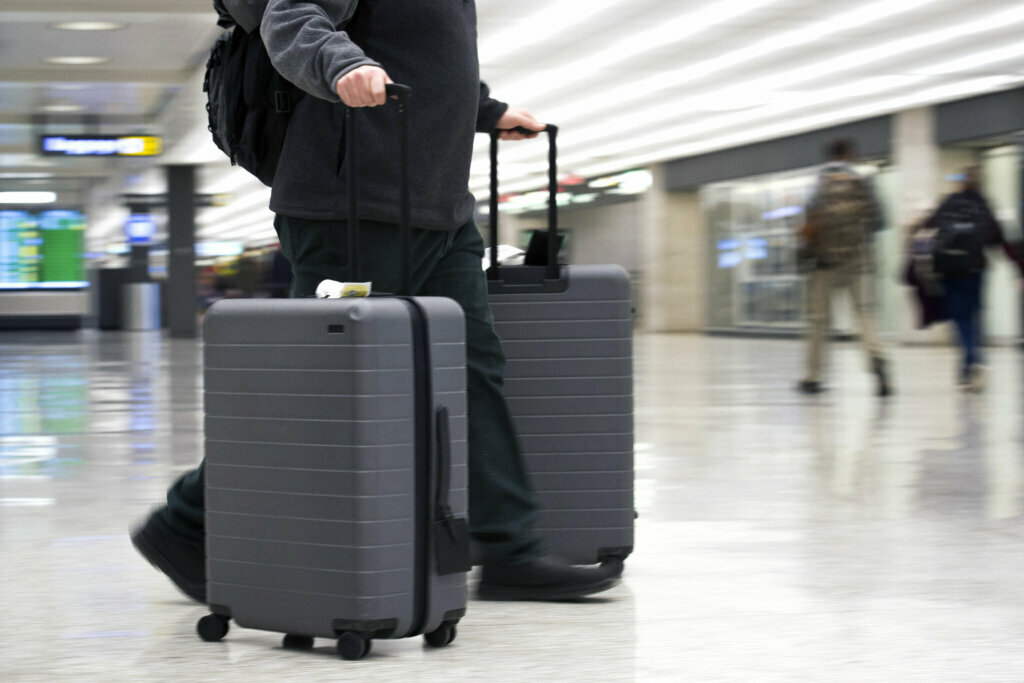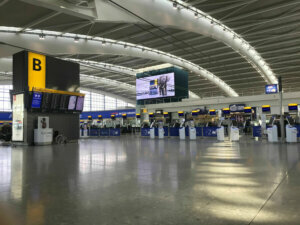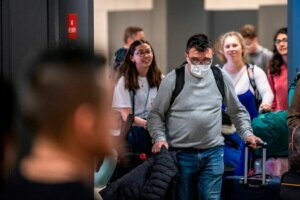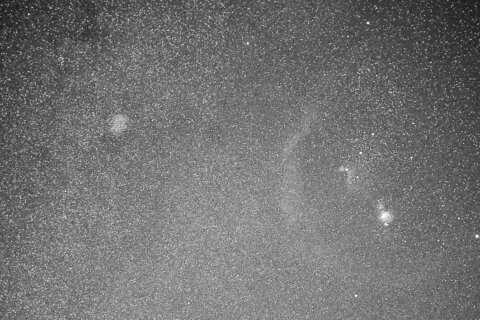
What started out as a 24-day cruise to the Indian Ocean evolved into a personal odyssey of struggling to get home due to the explosion of the coronavirus pandemic 10 days after we sailed.
My coronavirus odyssey continues as I write from home during Day 2 of my self-imposed quarantine after officials imposed medical screening at U.S. airports without adequate planning and preparation, and needlessly exposed a reported 40,000 people, including me, to the virus.
Beyond my role as WTOP’s “The Space Place” reporter, I give astronomy and space lectures on cruise ships. On Feb. 20, I boarded Azamara Quest in Cape Town, South Africa, and the ship got underway, with approximately 1,100 people on board for our destinations.
The cruise went as planned, until the captain informed the ship that we had been denied entry into Sri Lanka, and our itinerary would have to be changed accordingly.
- Sign up for news alerts from WTOP
- Closings and delays
- DC-area events canceled, postponed amid coronavirus outbreak
- Coronavirus tips: Use common sense, don’t panic over DC-area cases
- Coronavirus test results in DC, Maryland and Virginia
- Coronavirus FAQ: What you need to know
- What federal agencies are planning
The ship altered course for our next port of call, India. A few days later, the captain announced that India had closed its ports to cruise ships.
A few days later, the bombshell that propelled me and all others on board to start our respective coronavirus odysseys: the United Arab Emirates had closed their ports to cruise ships. Our final port of call and disembarkation location was in the UAE. We were now a ship with nowhere to go.
Fortunately, Azamara headquarters and the ship had been working on contingencies in case this would happen, which now paid huge dividends for having done so. Oman would allow us to dock and disembark at Muscat.
The immense relief felt on board by all was palpable. But now, the rush was on to get the required Oman visa and new flights. All of the guests worked with the crew to arrange new flights as everyone’s original travel arrangements were out the window due to the itinerary changes.
This is not easy to accomplish at sea on a cruise ship that has limited phone, computer and internet capability. But it all got done due to the magnificent efforts of the crew.
Then, the Trump administration’s haphazard “European travel ban” was announced with absolutely no warning. Once again, all travel arrangements went out the door.
Everyone got back to work knowing we had just two days before pulling into Muscat to arrange getting home. In the back of everyone’s mind was the real concern about whether there would be sufficient airline capacity to get us out of Muscat to London and then to the U.S. My Swiss Air flights to Zurich were now out.
It was very tense for everyone on board, but we got through it. The elation at docking at Muscat on March 12 ended 11 straight days at sea — an unusual amount of time for a cruise ship. Disembarkation proceeded over three days — again, a very unusual occurrence for a cruise ship. It usually takes a few hours for passengers to disembark.
I disembarked on March 13. Yeah, I know: Friday the 13th. Little did I know about what was to follow that would needlessly and directly expose me to the virus.

My flight on Oman Air to Heathrow was wonderful and uneventful; I arrived at 5:50 a.m. on March 14. I was getting more excited and anxious with each mile and passing second, as I was getting closer to home. But, at the same time, I was immensely worried about something going wrong to prevent me from getting there.
Heathrow was not very busy. I cleared security in less than five minutes! Unheard of at Heathrow.
When I saw the British Airways aircraft parked at the gate, I was so elated, grateful and anxious: so close to home but knowing things could still go wrong. Then, en route and at altitude, I felt an intense physical release of the stress that I had been carrying for over a week. I have never had that sensation in my life — ever. It was an accumulation of worrying about my family, because they were worrying about me, my Facebook friends expressing their feelings and real-world events caused by the virus.
There was one empty seat on the plane that I could see. I had donned a copper-infused surgical mask the moment I left Azamara Quest, and I was now on my third and last one.
Usually, when I travel, I have to tell my seatmates that I am not sick and wear a mask for protection. I didn’t have to do so this time as masks were en vogue.
I watched three movies and the flight map to pass the time. When the big bird touched down at Dulles International Airport, I was elated as, no matter what, I was now home after traveling 7,000 air miles and another 7,000 nautical miles to do so. Little did I know what was about to transpire.
As I entered the international arrivals/immigration area, I was relieved to see such a small number of people in line compared to what I’ve seen before. I estimated about a thousand. The line seemed a bit slow as we snaked through, and then I noticed another line of people in an area that moved along the area where people exited to Baggage Claim.
When I finally got to the Customs and Border Protection officer for processing, she asked me about where I had been and checked my passport. She said I would have to undergo medical screening. I was instructed to put my phone number and email address on my Customs Declaration Form, and it with my passport went into a plastic container with a red-colored top that was sealed. Off I went to — more likely than not — get exposed to the virus with everyone there.
Shoulder to shoulder, families with infants and children, people in wheelchairs, people coughing, people who did not look well, most without masks, all crowded into a line that would take three and a half hours to finally exit from.

All I could think of was how insane this was. Why were we doing this?! We were doing everything you shouldn’t be doing to avoid being exposed to coronavirus. I doubted that we would be so lucky that, in this herd of people, no one was infected.
We were never told why this was happening. As the line finally got near the medical screening room, questionnaires were passed out by Centers for Disease Control and Prevention personnel wearing masks, gloves and eye protection to help speed up the process.
The questionnaire was straight forward about where we had been and what, if any, symptoms we may have been experiencing. People were coughing in the screening room. Our temperature was taken, and we were give a CDC handout on coronavirus. I was free to go.
While waiting for my wife to pick me up, I realized that I had just been exposed, in all probability, to coronavirus. I very possibly could have walked through a coronavirus droplet cloud while snaking through that line of humanity.
I ditched my mask once outside the terminal, making sure there were no people present. Before getting into our car, I drenched my hands in sanitizer. Once home, I left all my bags in the garage to be sanitized by me the next day, stripped and placed my clothes into the washer. I thoroughly showered and got into fresh clothes.
I informed my family about the Dulles circumstances and that I would be starting self-quarantine as a result.
Let me be clear: The CBP and CDC federal employees were doing their jobs in a professional manner and at personal risk to themselves. Two CBP officers of high rank — one wearing a single star and the other major oak leafs — were working like their lower-ranked officers and talking to the crowd. As a retired federal employee, I was proud of the job they were doing and thanked them for doing so — this was not their fault.
I understood the port closings and did not blame the countries for doing so. But the flawed process 40,000 people were needlessly subjected to due to the lack of White House planning for it adds to the legacy history will attribute to this administration’s woefully inadequate handling of coronavirus.
“It’s a hoax” and “fake news” has led to horror and reality for most Americans. I am stunned by seeing Republicans telling people to get out and about the D.C. area.
Follow the CDC’s recommendations on the virus. Be safe. Be coronavirus smart. Stay healthy. WTOP will be there for you for the latest news. Together, we will get through this.
Follow my daily blog to keep up with the latest news in astronomy and space exploration. You can email me at skyguyinva@gmail.com.







